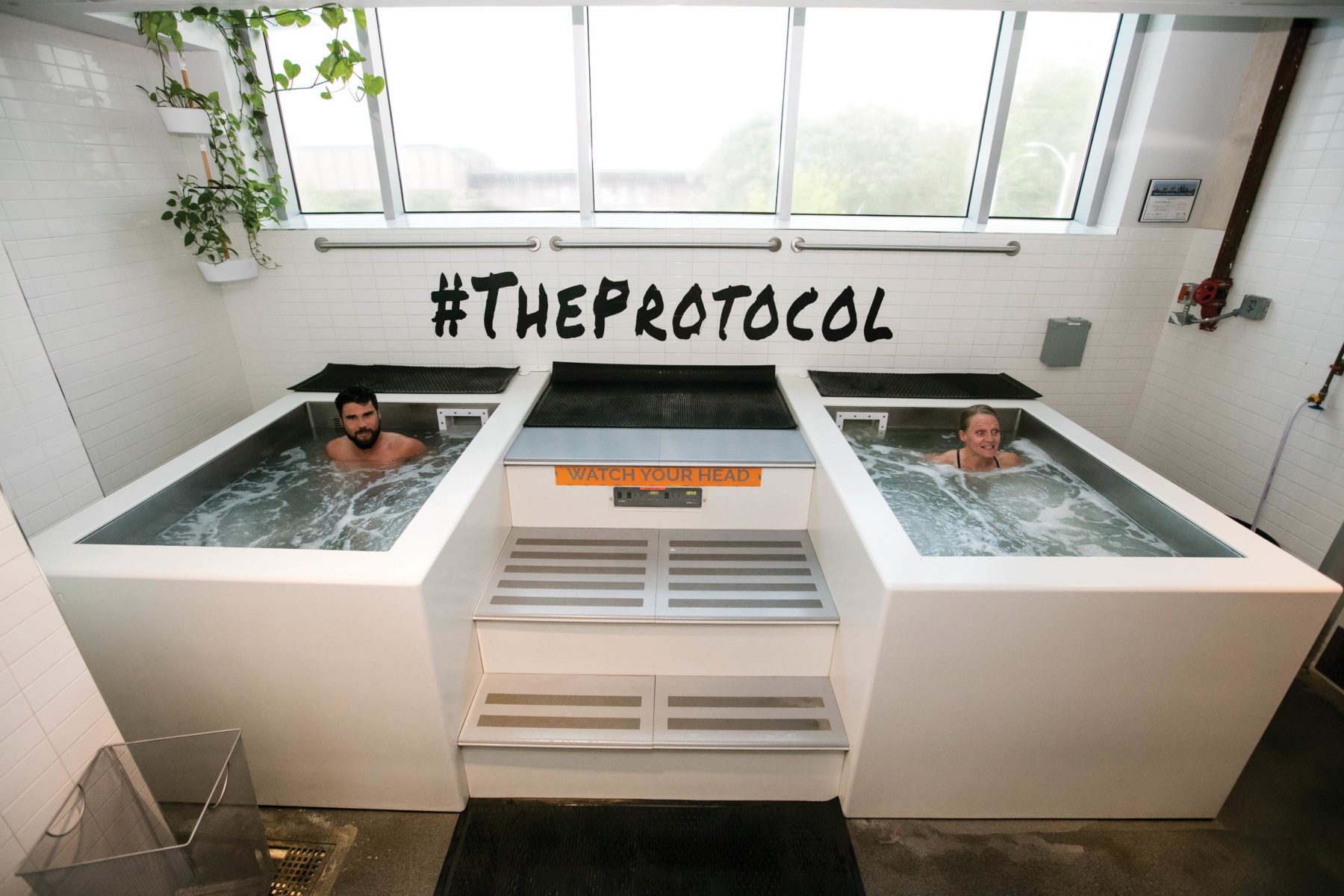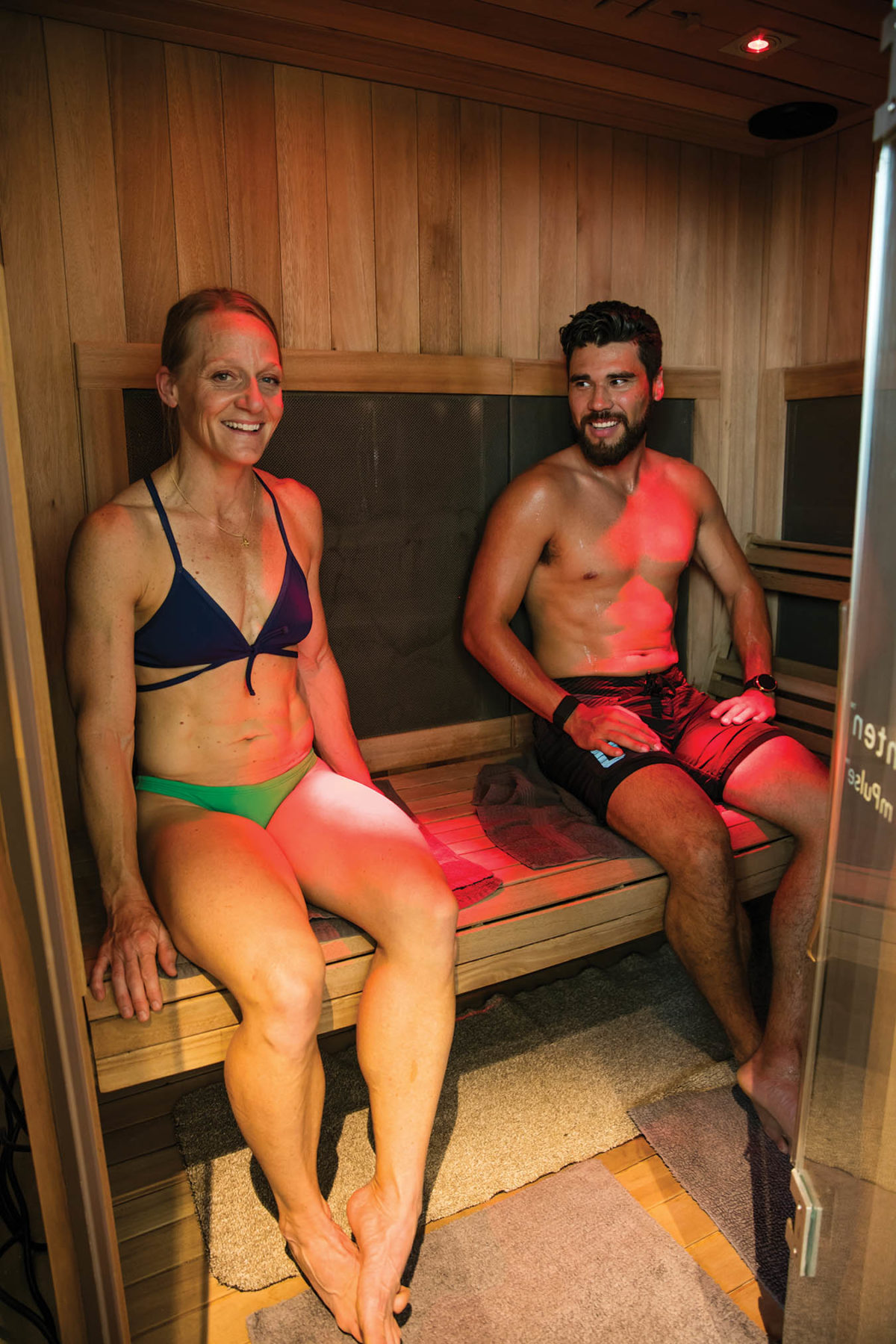The Science behind Contrast Hydrotherapy

Contrast therapy has many benefits for recovery and the body in general. But did you know that it has been scientifically proven to boost your mood and decrease the symptoms of depression?
I’m going to specifically cover in detail what is happening in your body while you are sitting in a sauna or while contrasting between cold and hot water (aka contrast hydrotherapy) as it is in these modalities that your body is releasing most of those “feel good hormones.”
Dr. Charles Raison and his research team have discovered that short periods of elevating one’s body temperature (hyperthermia) can be an antidepressant. His research team conducted two studies in which they placed individuals with major depression in a high-tech infrared heating (IR) device to see if it would have any effects on their mood. They found that just one single session of hyperthermia produced an antidepressant effect that lasted for six weeks. Meanwhile, this effect was not observed at all in depressed patients who received the placebo.
Even Dr. Rhonda Patrick is extremely intrigued by the benefits of IR sauna for mood. She is heard in an interview with Dr. Jari Laukannen speaking on the benefits of a sauna on one’s cardiorespiratory fitness. Poor cardiorespiratory fitness has also been linked to depression. Sauna bathing improves cardiorespiratory fitness and simultaneously elevates endorphins (those feel good hormones). Double whammy for a huge mood boost!
A recent study even showed that using saunas five to 15 times per month improved mental well-being compared to those using saunas less frequently.
What are the main mental health benefits from using IR saunas?
Reduced Anxiety, Stress and Depression
Infrared saunas have been shown to optimize the production and reception of the natural antidepressants in our brain — dopamine, norepinephrine and serotonin. It’s also been shown that they help to lower the level of cortisol in the body, the chemical associated with stress and tension.
Wow! So many amazing benefits, and we’ve just scratched the surface. Let’s move on to the benefits of contrast hydrotherapy – the act of contrasting between cold and hot water – to see what benefits it has on mood.
When you go from intense infrared heat to chilly water, you maximize the infrared experience for the best results and get an extra good-mood boost. Combining hot and cold extremes, known as contrast therapy, is a centuries-old practice favored around the world for its many perks — a cold shock improves immunity and circulation, reduces stress, relieves muscle soreness, reduces inflammation and more.

Immersing in chilled water will trigger a fresh jolt of adrenaline and rev up dopamine levels in your brain (coming off the high of infrared, making you feel even more elated). Depressive and stressed moods decrease, while the uplifting sensation awakens the entire body, sparking an increase in productivity and efficiency.
Contrast therapy also increases glutathione levels. Glutathione is the body’s “master antioxidant,” which helps protect the cells from oxidative damage and helps with a number of key functions in the body.
Let’s touch on cold water therapy specifically for just a moment. There are several compelling theories that might convince you to take the plunge to improve your mental health!
The Vagus Nerve
This nerve connects the brain with all of our organs and turns off the sympathetic state or fight-or-flight response we often have to stressful situations.
It turns out cold water exposure, even if it’s only splashing our face, activates the vagus nerve, thus slowing down our breathing and heart rate and switching us into a state referred to as parasympathetic mode, but more commonly known as “rest-and-digest.”
This is relevant to our mental health because research demonstrates that prolonged and chronic stress results in changes in the brain found in anxiety and depression.
Hormones
We know cold water immersion increases production of mood-elevating hormones and neurotransmitters (beta-endorphins, noradrenaline and dopamine) that can improve symptoms of depression and anxiety by changing the chemistry in our body and brain. The rush we feel upon jumping in cold water is partly due to these chemicals communicating the experience to our brain.
About the Author

Jessica Tranchina, PT, DPT, is a co-founder of Generator Athlete Lab and has been an athlete her whole life. As the creator of the Generator Method, Tranchina works to help guide others to better performance and recovery and is passionate about bringing the active community of Austin together from all fitness levels and athletic backgrounds. She is the owner of PRIMO Performance and Rehabilitation, started in Austin in 2010, where her expertise and unique skill set have been established as one of the best in her field. NASM-CPT, ART Certified Provider, CKTP.






